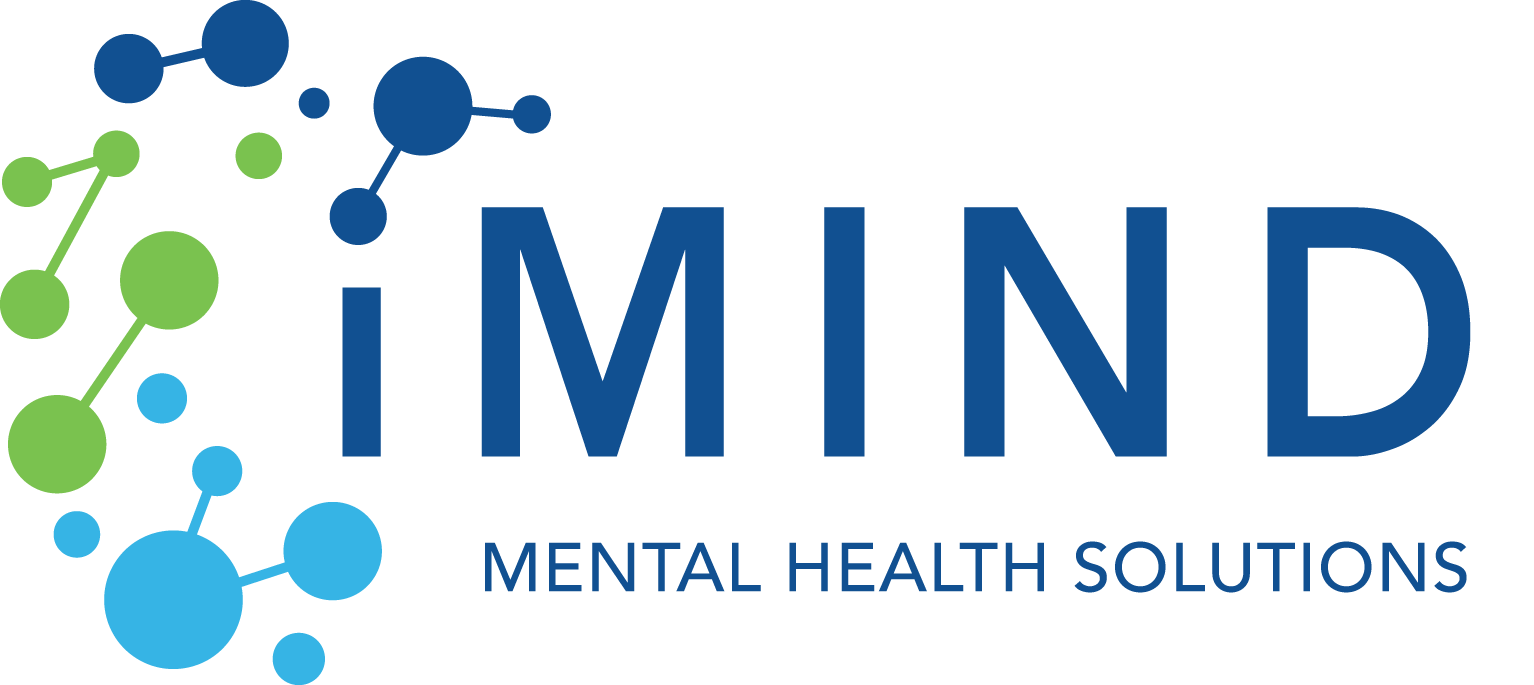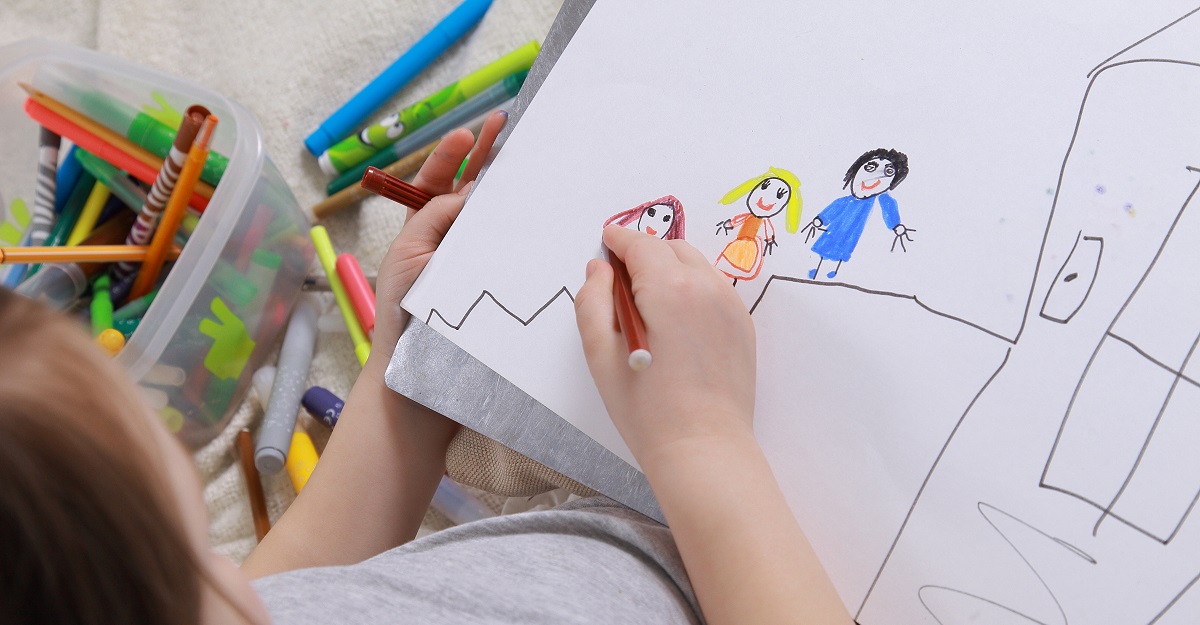Does Therapy Work?
Published By Justin Baksh, LMHC, MCAP
July 15, 2023

It can be rough out there. Many of us are hustling to make ends meet while nurturing our relationships and carving out some time for enjoyment. Yes, we live in a fast-paced and highly competitive world. Living in this environment makes good mental health even more essential.
Unfortunately, mental health is often disregarded in favor of the physical. If our bodies are fit, we can think that’s enough to triumph over life’s everyday challenges. But, without mental health, we can be unequal to the task.
What is Mental Health?
Mental health is our psychological, social, and emotional state. It affects how we think, feel, and act – controlling our decision-making, coping mechanisms, and relationships. Good mental health is vital at any stage in our lives, from childhood to young adulthood and beyond.
Why Mental Health Matters
Many times, people underestimate the impact of mental health. In fact, it can touch every aspect of life.
Good mental health can:
- Enhance Physical Health: Studies show a strong connection between mental and physical health. Those who prioritize their mental wellbeing typically have stronger immune systems.
- Optimize Quality of Life: Good mental health allows us to enjoy life more. It helps us to build strong relationships. It boosts creativity and productivity and allows us to manage challenging situations more effectively.
- Ward Off Mental Conditions: Proactive mental healthcare will shrink the chance of developing mental conditions such as depression or anxiety as well as severe mental illnesses like schizophrenia.
- Boost Work Performance: Good mental health enables us to stay sharp and focused on the job. Employers are recognizing the benefits of workplace wellness programs that take employees’ mental health into consideration.
- Improve Emotional Resilience: A healthy state of mind provides us with increased emotional resilience – the ability to bounce back from adversity and cope with life’s challenges more effectively.
Tips for Maintaining Mental Health
There are plenty of things we can try on our own which benefit our mental health.
Things we can do to boost our mental health:
- Connect with Others: Nurture supportive relationships through regular social activities or joining clubs with like-minded individuals.
- Stay Physically Active: Engage in regular exercise since it has proven effective in improving mood, alleviating stress, and boosting overall mental health.
- Cultivate Mindfulness: Practice mindfulness meditation or incorporate mindfulness techniques in your daily routine to manage stress and increase self-awareness.
- Make Sleep a Priority: You should put yourself on a healthy sleep schedule. Why? Sleep is critical to our mental and physical well-being. Without it, we just don’t function properly, and increase the risk of accidents or illness.
Seeking Help for Your Mental Health
What if you’re struggling with your mental health, and you’ve tried everything you can on your own? It is vital that you seek professional help before the issue worsens.
It’s natural to find yourself asking whether therapy works. To answer this question, let’s explore what therapy is, some common therapeutic methods, and the factors that can impact its success.
“I needed to talk about the hurt and pain, learn ways to cope, and exercise control and power over my past rather than it having power over me… The best piece of advice that I received during my ongoing sessions was that ‘it’s OK not to be OK.'”
– Yassin, in an interview with Insider
Does Therapy Work?
Therapy (also called psychotherapy or counseling) is, at its heart, a tool – a powerful one. Countless individuals have used therapy to both overcome mental health challenges and to lead more fulfilling lives.
But just how effective is therapy?
Research has yielded some pretty impressive statistics on the success of therapy. In fact, studies show that 70 to 90 percent of people who receive treatment for mental health experience improvement. This reduction in symptoms is “significant”, according to the National Alliance on Mental Illness.
The benefits of therapy are wide-ranging, touching every aspect of our lives.
Therapy can:
- Change your brain to function better
- Boost your income
- Increase work satisfaction
- Make you 32 times happier
- Improve your emotional state
- Decrease sick days
- Lessen disability
- Reduce your blood pressure
- Ease medical problems
- Be as effective as surgery in relieving chronic pain
The bottom line is that therapy relieves symptoms and helps you achieve a higher level of functioning at work, at home, and in your personal life.
“I think what I’ve learned that’s helped me the best is coping strategies that allow me to sit with my depression, but have also allowed me to get out of those valleys quicker than before… Pre-therapy, I’d likely sit in a depression episode for a long stretch of time. Therapy has helped me express and make sense of what’s going on.”
– Chris, in an interview with Insider
What Kinds of Therapy are There?
Finding the right approach to psychotherapy is essential for individuals seeking to improve their mental health. With options such as CBT, psychodynamic therapy, humanistic therapy, and family systems therapy available, there is an approach suited to every individual’s needs.
Cognitive Behavioral Therapy (CBT)
CBT is a widely researched and highly effective approach that targets thinking patterns and behaviors that may be causing or perpetuating emotional distress. Therapists work closely with patients using evidence-based techniques such as cognitive restructuring, behavior modification, goal setting, and problem-solving. As individuals learn to challenge negative thoughts and develop healthier coping strategies, they often experience improvements in their mental well-being.
Benefits of Cognitive Therapy:
- Proven effective for a wide range of issues including depression, anxiety, eating disorders, and substance abuse
- Structured and goal-oriented
- Often includes homework assignments between sessions
- Short-term treatment, typically lasting from six to 20 weeks
Psychodynamic Therapy
Drawing from Freudian psychoanalysis, psychodynamic therapy seeks to uncover unconscious processes that influence our daily lives. By excavating childhood experiences and delving into the depths of the psyche, individuals can gain insight into recurring patterns of behavior that may be holding them back. Therapists in this modality use techniques such as free association, dream interpretation, and analysis of transference issues.
Benefits of Psychodynamic Therapy:
- Suitable for those seeking understanding of underlying issues affecting their relationships and self-esteem
- Encourages self-discovery at a deeper level
- Can foster long-lasting internal change
Humanistic Therapy
Rooted in the belief that everyone possesses an innate capacity for growth and self-improvement, humanistic therapy provides a supportive environment in which individuals can explore their emotions and feelings. Common approaches within this category include person-centered therapy, gestalt therapy, and existential therapy.
Benefits of Humanistic Therapy:
- Emphasizes empathy and self-awareness
- Tailored to individual needs
- Addresses existential concerns or the pursuit of personal growth
Family Systems Therapy
Family systems therapy takes into account the interconnected nature of relationships within a family, recognizing that problems often emerge from dysfunctional patterns, communication breakdowns, or unresolved conflicts. By working together as a unit, family members can learn new ways of relating, ultimately fostering more harmonious relationships.
Benefits of Family Systems Therapy:
- Helps families resolve conflicts and improve communication
- Encourages understanding between family members
- Can create lasting change for both individuals and the entire family unit
What Factors Impact the Success of Psychotherapy?
“It’s when we talk about what troubles us in a brave space that we can begin to humanize our issues to make them at least a little less daunting… Through group therapy, I learned that I wasn’t just worthy of therapy, but I was worthy of healing.”
– Sonya, in an interview with Insider
The success of psychotherapy is influenced by several factors, including the therapeutic alliance, the choice of interventions, individual client and therapist characteristics, cultural sensitivity, time commitment, and regular assessment of progress.
Therapeutic Alliance
The therapeutic alliance is one of the most critical aspects of a successful psychotherapy experience. A strong bond between client and therapist, built on trust, empathy, and mutual goals, creates a supportive environment where personal growth and change can occur. Actively participating in the therapy process by asking questions, sharing insights, and engaging in frank discussions can strengthen this relationship.
Client Factors
Individual attributes such as motivation, openness to change, and willingness to work through difficult emotions have significant effects on the outcomes of therapy. Coping skills and social support from friends or family members also play essential roles in facilitating clients’ progress.
Psychological Interventions
The choice of therapeutic techniques should be tailored to address an individual’s unique needs and symptoms.
Therapist Factors
Successful therapists possess strong active listening skills, empathy, genuine concern for their clients, and excellent communication abilities. They are also knowledgeable about the latest research developments in their field and adapt their approaches based on each client’s needs.
Cultural Sensitivity
Therapists need to be aware of a client’s cultural background to provide effective treatment that resonates with the person’s values, beliefs, and customs. Integrating culturally sensitive therapies fosters a deeper understanding between therapist and client.
Time Commitment
Although there is no hard-and-fast rule for how long psychotherapy should take, staying committed to the treatment process is vital to succeed. Some clients may require just a few sessions, while others might need to engage in therapy for an extended time.
Measuring Progress
Assessing progress and evaluating the therapy’s effectiveness is essential. Setting clear and measurable goals, revisiting them periodically as treatment progresses, and discussing any issues or obstacles can help ensure that both client and therapist remain aligned throughout the therapeutic process.
Ultimately, the success of psychotherapy is variable and depends on several critical factors that will be unique to each individual patient, therapist, and situation. By understanding the essential role of these factors in successful therapy, clients will be better equipped to navigate the journey toward improved mental health and personal growth.
- American Psychiatric Association. (2019, January). What is Psychotherapy? Psychiatry.org; American Psychiatric Association.
- American Psychological Association. (2013). Managing chronic pain: How psychologists can help with pain management. American Psychological Association.
- Boyce, C., & Wood, A. (2010). Money or mental health: The cost of alleviating psychological distress with monetary compensation versus psychological therapy. Health Economics, Policy and Law, 5(4), 509-516. doi:10.1017/S1744133109990326
- Cozzi, G, et al. European Economic Review, Volume 109, 2018, Pages 257-275, ISSN 0014-2921, doi.org/10.1016/j.euroecorev.2017.10.005
- Lusinski, N. (n.d.). 14 people reveal the No. 1 thing they learned from therapy. Insider.
- Prev Med Rep. 2021 Sep; 23: 101477. Published online 2021 Jul 6. doi: 10.1016/j.pmedr.2021.101477
- Vasile, C. (2020). Mental health and immunity (Review). Experimental and Therapeutic Medicine, 20(6), 1–1. doi.org/10.3892/etm.2020.9341
- Yoshimura, S., et al. Social Cognitive and Affective Neuroscience, Volume 9, Issue 4, April 2014, Page 487-493, doi.org/10.1093/scan/nst009






